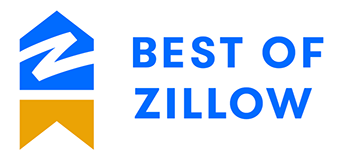The term real estate means immovable property. They frequently refer to an amount of land and any such thing connected to lands, such as the air above land and the floor below land, and any structure or building in the land, such as fittings, roads, utility structure, wall, and so on. Commonly, they are immovable or movable, they can be bought, leased, sold, or replaced completely or individually. They are called legal designation and they are subject to the law. Houses and apartments are included as words mentioned above. The real estate market is currently defined as the gathering of potential buyers and sellers of real estate and the current transactional function for real estate.

This includes markets for different types of property such as the land market, home market, office market, and condominium market. Creative Real Estate Solutions Provider, wikiland , establishes the principle in the real estate market in Vietnam. The Vietnamese real estate market has long evolved from the “Doi Moi” policies of the Vietnamese government to the integration of the Vietnamese government and the Vietnamese economy into the World Trade Organization. Vietnam has reached very high economic development with a lot of victories in the activities of modernization and industrialization. The number of foreign direct investment and the number of financial resources in Vietnam is increasing. So, the economy has a lot of challenges and chances. Statistics show that a sector receives a large amount of foreign direct investment from the real estate sector. The world has to deal with a global financial challenge, 2008, and Vietnam is also affected. It leads to a decrease in the growth rate of Vietnam’s economy. An unstable domestic economy, high inflation, and inefficient government systems outcome in a duration of economic saturation. Just, the increasing inflation endangered the Vietnamese financial with liquidity crises. Vietnam’s real estate region also experienced ups and downs.
Regardless, in the hard financial condition, the need for low-cost and accessible houses in large towns yet improved. Planning for such an accessible house is yet particular due to various hurdles in the proper framework. Low-cost housing Considers numerous schemes or low-income housing schemes run by the government. Several investors or businesses do not finance building accessible residences when approaching the Vietnamese market and concentrate only on luxury residences and flats. The sale price to the end-user will be higher than the 10% profit margin. Nonetheless, the low-cost residence system is yet to meet the high need for residence for downtown community people. In extension, some low-cost residence schemes under the government’s low-income residence system are of poor quality. Middle-income and low-income people yet expect to live in a flat with good quality, good living circumstances with good cost. Awfully large towns like Hanoi, Hai Phong, Ho Chi Minh City, and so on are where the need for accessible houses for poor-income and middle-income people increases particularly when the sequence of immigrated people in those towns rises. Vietnamese National Housing Strategy is willing to work out residence difficulties for medium-income and poor-income people in Vietnam. One of the largest issues about the residence plan is the scarcity of financial resources and budget management, and the conclusion of a detailed solution for medium-income or poor-income people may address their desired home. There is a policy called “Mixed-income housing” kept up by TE Enterprise to give houses for medium-income and poor-income families.







